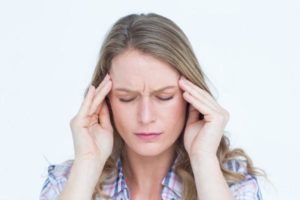
What are the risks of constant clenching? Your teeth resist stress every day by biting and chewing your food. For some people, that pressure is multiplied by constant clenching and grinding. The habit of clenching your teeth may not produce any symptoms. Or it in combination with bruxism may wear down your teeth enough to throw your bite off balance. The most common forms occur while patients are asleep. Most people are unaware of their condition, and much less able to consciously stop it. Luckily, tooth wear and other risks of clenching and grinding are among the things that dentists look for during checkups.
Signs and Symptoms of Bruxism
A sign is something that your dentist can look for to signify the presence of bruxism, while a symptom is something you experience as a result of the condition. The dentist might suspect habitual teeth grinding if he notices excessively worn teeth, weak enamel that exposes the tooth’s underlying layers, or cracked/fractured teeth. Symptoms that are risks of clenching:
- Tooth sensitivity
- Sore, sensitive, or tight jaw and facial muscles
- A headache that seems to not go away, especially when waking up in the morning
- Frequently biting the inside of your cheek
- Ringing and pain in the ears (tinnitus) as a result of jaw muscle contractions
- Sleep disorders such as a condition called sleep apnea or night terrors
You may experience all, some, or none of these symptoms. Maintaining regular dental checkups will help your dentist keep an eye on your teeth for potential signs of trouble.
Common clenching causes and risk factors
In many respects, bruxism is still a mystery to medical and dental doctors, mainly what exactly drives the habit. Chronic stress and anxiety are commonly observed risk factors, as are crooked teeth and an imbalanced jawbone. Teeth grinding is also a side effect of some medications, like antidepressants, and a complication of some illnesses. If you’re under an unusual amount of stress, require orthodontic treatment, smoke tobacco, drink caffeine, have a congenitally asymmetrical jawbone, or have been diagnosed with TMJ disorder, then you may be at an increased risk for bruxism.
Issues associated with teeth clenching
Your tooth enamel is the most resilient substance your body produces. Comprised of super long, super strong strands of mineral crystals, enamel can withstand the consistent pressure of biting and chewing food while protecting your teeth from harmful bacteria. When they rub against each other with no food between them, your teeth can strip each other of enamel. A risk of clenching and grinding is leaving your teeth vulnerable to infectious tooth decay and the cavities they form. Under the strain, your teeth can also develop cracks and fractures, or pieces of your teeth can chip or break off. One of the most common issues associated with bruxism, though, involves the joints and muscles that power your jaw’s movement.
TMJ disorder describes a problem with your temporomandibular joints (TMJs), the joints that connect your lower jaw to your skull. The joints can become inflamed or misaligned, or the disk can develop a perforation, usually due to an unreasonable amount of pressure. The trauma of constant tension makes grinding a leading factor for TMJ disorder.
How to treat jaw pain from sleep bruxism
How a dentist treats your gnashing your teeth habit depends on its cause and whether or not any teeth need restoring due to dental damage. For some patients, stress management techniques can help relieve their physical tension and symptoms of bruxism. If a tooth is cracked or broken, then the dentist may recommend a dental crown to reinforce the tooth and prevent it from fracturing further. Crooked teeth, which can affect the balance of your bite and agitate your jaw muscles, can be corrected with orthodontic treatment. Alternatively, a mouth guard can be custom crafted to protect your teeth while you sleep at night.
If your dentist wants to give you muscle relaxants, we advise you to seek a second opinion. Medications have many side effects that you want to avoid.
Learn more about grinding or clenching risks
To schedule your consultation, call our office today at (847) 234-0517.
